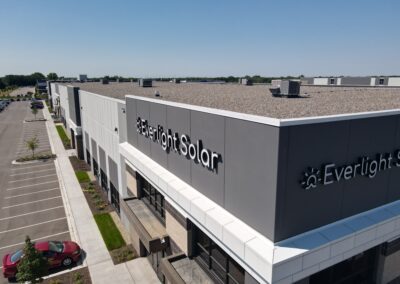When determining if going solar for your home is a wise financial decision, there are a couple of critical factors that you should consider, the cost of solar energy and the price of utility electricity. When the cost of solar is less than the rate paid to the utility for power, then it is with absolute clarity that going solar makes sense and will save you money.
Cost of Solar Energy
The cost of solar continues to drop over time and is now more affordable than ever! Lower prices are the reason for the high demand for residential solar installations. Today, many homeowners are saving money by reducing their power bills with solar.
When purchasing power from your utility, you have likely experienced electricity prices fluctuating seasonally as well as annually. You may have noticed costs trending in an upward direction rather than decreasing over time. What would happen if electricity rates from your utility began to drop instead of going up? Would solar still be an economically sound decision? Several factors influence the prices of utility power, and this article intends to resolve these questions and negate any notions that the cost of electricity will be lower in the future.
Factors Influencing Grid Prices
Over the last ten years, the rate for residential electricity has seen significant price increases across the US. This trend is expected to continue in the future, while some states may experience sharper increases in prices than others. What are the influencing factors behind the rising costs of electricity, and what about them tells us that a future decrease in rates is unlikely?
Fuels: When the demand for electricity is high, the need for fuels like natural gas also increases. As the demand for both power and fuel rises, fuel prices will go up. The increase in the cost of fuel directly impacts the cost of electricity, causing it to increase. This cycle is continuous, though natural gas prices have fallen in recent years due to “fracking,” they are expected to rise again with the completion of export terminals. Export terminals would result in the exposure of America’s natural gas supply to international markets.
Weather Conditions: Demand for electricity is often affected by extreme weather conditions. The amount of energy needed to cool or heat a home is higher; thus, the demand during drastic weather conditions increases. Higher demand drives the cost of electricity up. With the occurrence of global climate change, it is unlikely that we will see prices decreasing because demand will increase with more extreme weather conditions.
Power plants: A portion of electricity prices go to the power plant to fund any construction, maintenance, and operating costs.
Transmission and Distribution: Maintenance costs for transmission and distribution systems delivering electricity include damage repairs the result from accidents and extreme weather.
Installing a solar system on your home means that once the panels are completely paid off, your electricity becomes ‘free.’ Another benefit of going solar is that if you decide to go with a solar loan instead of an upfront cash payment, you will have a fixed monthly rate. From the day of your installation, you will be saving money as solar protects you from the changes in electricity prices.
How Going Solar Can Make a Difference
In the graph below, you’ll see that it’s not just residential rates that are rising over time but also commercial and industrial. Since 2002, there has been a significant increase in the cost of electricity for all sectors. By installing solar, you could have more control over what you pay for electricity, as it helps you to avoid increasing prices.
A home solar system is an excellent way to lower your power bill because the energy generated from it is not subject to the same factors that influence utility prices. If you go solar, your electricity bill will always be more predictable and will almost certainly be lower in the long term future than if you stick with grid electricity. Once the panels are completely paid off, your electricity becomes ‘free.’ Another benefit of going solar is that if you decide to go with a solar loan instead of an upfront cash payment, you will have a fixed monthly rate. From the day of your installation, you will be saving money as solar protects you from the changes in electricity prices.






